AI and the Future of Work

Introduction
The integration of artificial intelligence (AI) into the workplace is reshaping traditional roles, redefining job functions, and necessitating the reskilling of the workforce. As AI technologies automate routine tasks, augment human capabilities, and enable new forms of collaboration, the future of work is undergoing a profound transformation. In this article, we will explore the implications of AI on the future of work, examining how it is redefining roles and highlighting the importance of reskilling initiatives to prepare the workforce for the AI-driven era.
Evolution of AI in the Workplace
- Historical Context: AI has evolved from a niche technology to a pervasive force in the workplace, with applications spanning various industries and sectors. Early AI systems were primarily focused on automating repetitive tasks, but recent advancements in machine learning and natural language processing have enabled AI to perform complex cognitive tasks previously reserved for humans.
- Automation and Augmentation: AI technologies automate routine tasks, freeing up human workers to focus on higher-value activities that require creativity, critical thinking, and emotional intelligence. Additionally, AI augments human capabilities by providing real-time insights, personalized recommendations, and decision support, enhancing productivity and efficiency in the workplace.
- New Forms of Collaboration: AI-powered collaboration tools facilitate seamless communication and knowledge sharing among distributed teams, enabling remote work and cross-functional collaboration. From virtual assistants and chatbots to collaborative robots (cobots), AI technologies are transforming the way teams collaborate and interact in the digital workplace.
Redefining Roles in the AI Era
- Job Displacement vs. Job Transformation: While AI automation may displace certain roles and tasks, it also creates new opportunities and reshapes existing job functions. Rather than eliminating jobs altogether, AI often transforms the nature of work, requiring workers to adapt and acquire new skills to remain competitive in the labor market.
- Emergence of New Roles: The proliferation of AI technologies gives rise to new roles and job titles, such as AI ethicists, data scientists, and machine learning engineers. These roles require specialized skills in data analysis, algorithm development, and ethical decision-making, reflecting the growing demand for AI expertise in the workforce.
- Human-Machine Collaboration: In the AI-driven workplace, human workers collaborate closely with intelligent machines, leveraging their respective strengths to achieve common goals. This symbiotic relationship between humans and AI fosters innovation, creativity, and agility, enabling organizations to adapt to changing market dynamics and customer needs.
Reskilling the Workforce for the AI Era
- Lifelong Learning: In the face of rapid technological change, lifelong learning becomes essential for maintaining relevance in the workforce. Workers must continually update their skills, acquire new knowledge, and embrace lifelong learning opportunities to adapt to evolving job requirements and technological advancements.
- Upskilling and Reskilling Initiatives: Employers play a crucial role in facilitating workforce reskilling and upskilling initiatives to equip employees with the skills needed to thrive in the AI era. Training programs, workshops, and online courses can help workers develop proficiency in AI-related skills such as data analysis, programming, and digital literacy.
- Emphasis on Soft Skills: In addition to technical skills, soft skills such as creativity, emotional intelligence, and adaptability are increasingly valued in the AI-driven workplace. These human-centric skills complement AI capabilities and enable workers to excel in roles that require complex problem-solving, interpersonal communication, and empathy.
Challenges and Opportunities
- Economic Disruption: The widespread adoption of AI automation may lead to economic disruption, job displacement, and income inequality, particularly for workers in low-skilled and routine tasks. Addressing these challenges requires comprehensive policies and programs to support displaced workers, foster job creation, and promote inclusive economic growth.
- Ethical Considerations: The ethical implications of AI in the workplace raise important questions about privacy, bias, and algorithmic accountability. Employers must prioritize ethical AI practices and ensure transparency, fairness, and accountability in AI-driven decision-making processes to mitigate potential risks and safeguard employee rights.
- Innovation and Growth Opportunities: Despite the challenges, AI presents significant opportunities for innovation, growth, and productivity gains in the workplace. By embracing AI technologies and investing in workforce development initiatives, organizations can unlock new business opportunities, drive efficiency improvements, and enhance employee satisfaction and engagement.
Conclusion
AI is reshaping the future of work, redefining roles, and necessitating the reskilling of the workforce. As AI technologies continue to evolve and proliferate, organizations must adapt to the changing nature of work by investing in employee training, fostering a culture of lifelong learning, and embracing human-machine collaboration. By addressing the challenges and seizing the opportunities presented by AI, organizations can position themselves for success in the AI-driven era while empowering their workforce to thrive in the digital economy.





